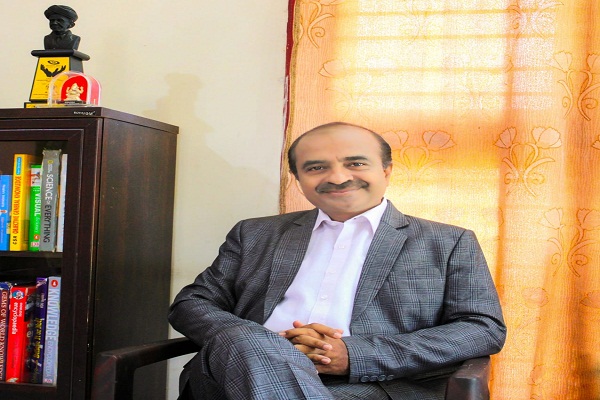
Gen Z are born to be digital; Gen Zers are digital natives, born between 1996 and 2010, they are studying in our higher Ed institutions now. These students grew up not only with computers and internet access, but also with smart phones, social media and mobile devices. It‟s time to rethink and restructure the education system for these digital natives. Gen X and Gen Y teachers, who have been using chalk & talk approach, need to reshape curriculum and content delivery differently. Being distracted learners, current students concentration span is low. We need to make their learning experience rich and engaging, to empower them.
The outbreak of novel coronavirus has created an unprecedented situation around the world, never seen in our lifetime. The shutdown is very painful; staying at home and staying safe is the top priority. Amidst this uncertainty and disruption Covid has brought in, there are opportunities to initiate some positive changes in the field of education.
The whole world of higher education is going digital. Our Proudhadevaraya Institute of technology (PDIT), Hosapete has switched to virtual class mode since the announcement of lockdown by the govt.
E-learning had been a part of our system in the past 5 years, but not mainstream. Teachers provided curated e-notes and PPT files for all modules of the syllabus in the beginning of each semester. These resources were also made available in a web repository hosted by college. With the Covid challenge, our techno savvy teachers jumped into virtual class mode using online platforms viz Zoom and G Suite for Education.
There is a saying, “when the going gets tough, the tough gets going”, similarly, “When physical classes come to a halt, classes continue in distance mode!” This was a quick but smooth transition.
Fortunately, All India Council for technical Education (AICTE), National Programme on Technology Enhanced Learning (NPTEL) and Visvesvaraya Technological University (VTU) have played a proactive role in switching the institutions to Elearning mode. AICTE has offered commercial LearnEngg, m-tutor resource apps freely available to learners. Treasures of resources are available at fingertips on web. Anytime, anywhere learning is not a dream anymore! „Work from home‟or „teach from home‟ is a reality for our faculty now. Students are learning in the comfort of their homes. Thus, we protect the health and also academic interests of each and every student.
The Vice Chancellor of VTU, to which our Institution is affiliated, conducted a video conference on 20th march and suggested all colleges to shift to Elearning mode. He also hinted that this semester may not be extended and the examinations scheduled in the month of June may not be postponed. With this strategy on the anvil, it’s become mandatory on the part of institutes to keep students engaged and teaching continued in whatever possible modes. Here, the digital divide loomed large among the faculty, as some Gen X teachers were not comfortable with virtual mode classes. Initial learning curve is steep. With some initial glitches and pitfalls, our senior staff also are gradually picking up the tricks of the trade.
We need to understand new Gen students. For them, everything has to work on smart phones! So, the course design must be mobile responsive. Just like traditional classrooms, interactive nature will not miss in Zoom classes where anybody can raise hand and ask questions; White board, PPT, graphics, videos, text, and sound all can be delivered through a virtual class using zoom platform. Mobile apps that provide enhanced learning opportunities have become mainstream. Our staff schedule classes and notify through WhatsApp class groups. Students hook up to classes at the scheduled time and attendance is between 60-90%. It’s given us a gratifying experience and we will continue it to supplement classroom learning, even after the college reopens, once this pandemic episode ends. According to an estimate, average screen time of 18-22 age students spend with, is 7.5 hours per day. Hence, our educational leaders have to find ways to reach out our students through this smart screen. Teachers have to develop pedagogy for this digital shift.
COVID-19 has become a catalyst for educational institutions worldwide to search for innovative solutions in a relatively short period of time. E-learning is emerging in a big way as a game changer. We will not let corona virus attack the learning!






















